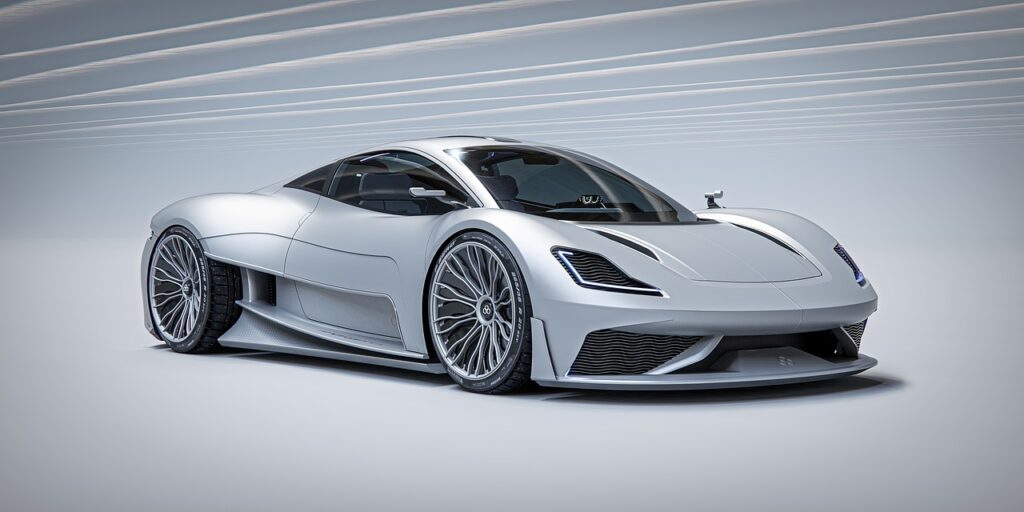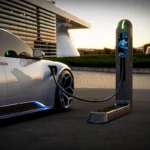The automotive industry is undergoing a massive transformation, driven by technological advancements, regulatory changes, and shifting consumer preferences. As we step into 2025, several key trends are set to shape the future of mobility. From electrification to AI-driven automation, these innovations will redefine the way we travel and interact with vehicles. Here are the top 10 automotive industry trends to watch in 2025.
Menu list
- 1. Electric Vehicles (EVs) Dominate the Market
- 2. Autonomous Driving Technology Progresses
- 3. Vehicle-to-Everything (V2X) Communication
- 4. Rise of Software-Defined Vehicles
- 5. Expansion of Mobility-as-a-Service (MaaS)
- 6. Growth of Hydrogen Fuel Cell Vehicles (FCVs)
- 7. Sustainability and Circular Economy in Manufacturing
- 8. AI-Driven In-Car Experiences
- 9. 3D Printing in Automotive Production
- 10. Increased Cybersecurity Measures
- Conclusion
1. Electric Vehicles (EVs) Dominate the Market
The shift towards electric mobility is accelerating, with EVs expected to account for a significant portion of new vehicle sales in 2025. Governments worldwide are implementing stricter emission regulations and offering incentives to promote EV adoption. Automakers are responding with more affordable, long-range, and high-performance electric cars.
2. Autonomous Driving Technology Progresses
Self-driving technology continues to advance, with Level 3 and Level 4 autonomous vehicles becoming more common on roads. Companies like Tesla, Waymo, and traditional automakers are investing heavily in AI-driven automation, promising enhanced safety and efficiency. While full autonomy (Level 5) may still be years away, 2025 will see more widespread adoption of semi-autonomous features.
3. Vehicle-to-Everything (V2X) Communication
Connected vehicle technology is evolving with V2X communication, allowing cars to interact with infrastructure, pedestrians, and other vehicles. This advancement enhances road safety, reduces traffic congestion, and optimizes fuel efficiency. Smart cities are integrating V2X to improve urban mobility.
4. Rise of Software-Defined Vehicles
Modern vehicles are becoming more software-driven, with over-the-air (OTA) updates becoming a standard feature. Automakers are shifting towards a model where software plays a crucial role in vehicle performance, user experience, and security. Expect increased investment in AI-powered in-car assistants, personalized settings, and remote diagnostics.
5. Expansion of Mobility-as-a-Service (MaaS)
Car ownership is declining in urban areas as Mobility-as-a-Service (MaaS) platforms like ride-sharing, car-sharing, and subscription-based services gain popularity. In 2025, we’ll see further integration of MaaS with public transport systems, offering seamless and cost-effective mobility solutions.
6. Growth of Hydrogen Fuel Cell Vehicles (FCVs)
While EVs dominate the clean energy shift, hydrogen fuel cell vehicles (FCVs) are gaining traction, especially for heavy-duty transport and long-range applications. Companies like Toyota, Hyundai, and Honda are expanding their FCV portfolios, with more hydrogen refueling infrastructure being developed.
7. Sustainability and Circular Economy in Manufacturing
Automakers are focusing on sustainability by adopting eco-friendly materials, reducing waste, and enhancing recyclability. The circular economy model is being embraced, where vehicle components are repurposed or reused, minimizing environmental impact. Expect to see more biodegradable interiors and carbon-neutral production processes.
8. AI-Driven In-Car Experiences
Artificial intelligence is transforming in-car experiences with voice assistants, predictive maintenance, and advanced driver-assistance systems (ADAS). AI-powered infotainment systems will offer personalized content, hands-free controls, and smart navigation, making driving more enjoyable and intuitive.
9. 3D Printing in Automotive Production
3D printing is revolutionizing automotive manufacturing by enabling cost-effective prototyping, lightweight components, and customized vehicle parts. In 2025, more automakers will adopt 3D printing for rapid production, reducing reliance on traditional supply chains and enhancing design flexibility.
10. Increased Cybersecurity Measures
With the rise of connected and autonomous vehicles, cybersecurity is a growing concern. Automakers are implementing robust cybersecurity protocols to protect vehicles from hacking threats. Blockchain technology and AI-driven threat detection systems will play a crucial role in ensuring vehicle data security and passenger safety.
Conclusion
The automotive industry is evolving at an unprecedented pace, driven by advancements in electrification, automation, connectivity, and sustainability. As we navigate through 2025, these trends will shape the future of transportation, making vehicles smarter, safer, and more efficient. Staying ahead of these innovations will be crucial for automakers, suppliers, and consumers alike.


